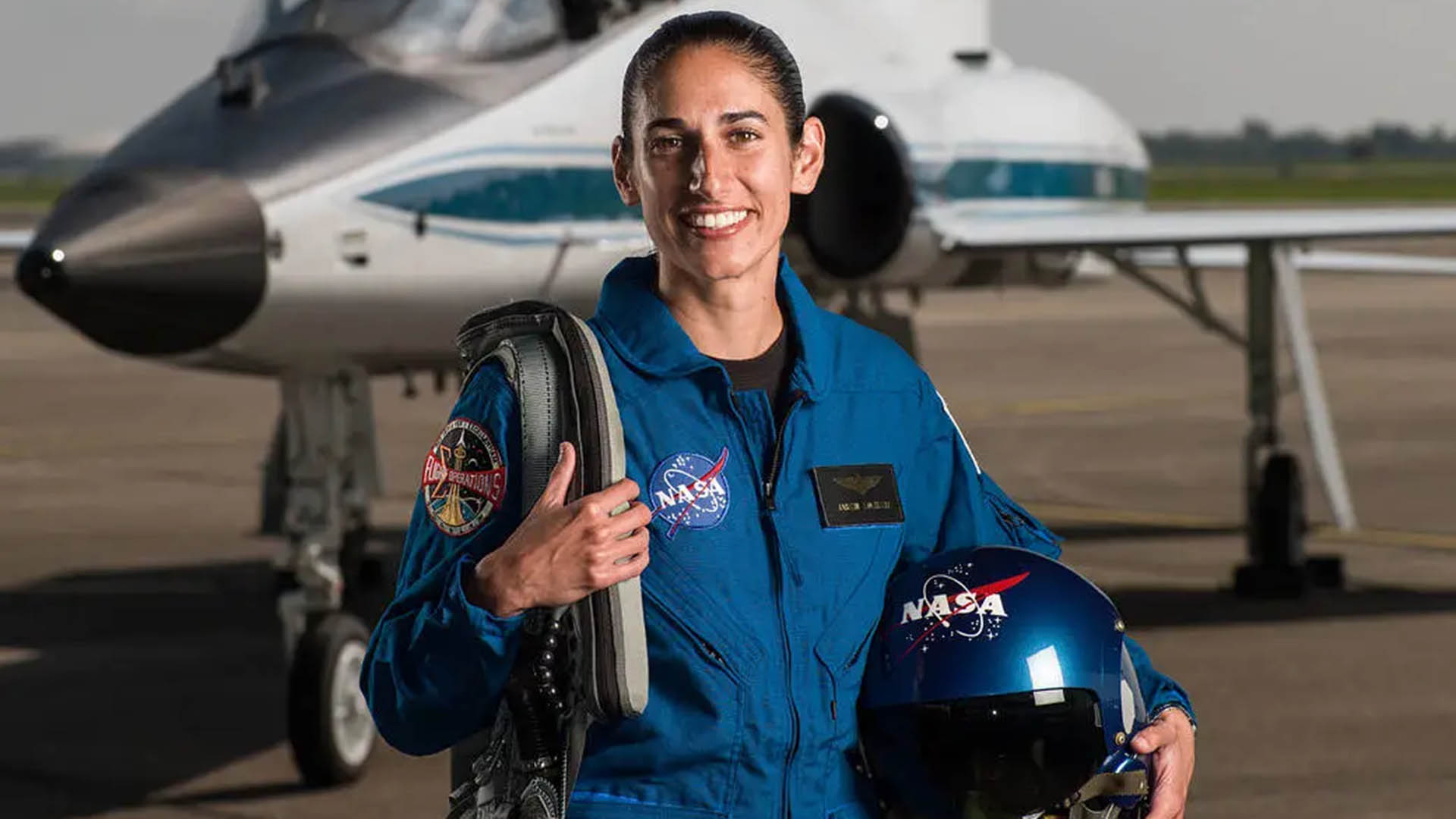

Most people might find the International Space Station’s crew quarters to be a little cramped, but not Marine Lt. Col. Jasmin Moghbeli, a NASA astronaut who returned in March from six months in space.
Each astronaut aboard the space station has his or her own room that is roughly the size of a telephone booth, said NASA spokeswoman Sandra Jones. All the astronauts also share a single toilet.
But when Moghbeli recounted her mission aboard the space station to members of her former unit earlier this month she described her accommodations in the most Marine Corps way possible.
“I never had my own personal room on any deployment, so I thought it was pretty luxurious,” Moghbeli said, according to a news release from the 3rd Marine Aircraft Wing.
On Dec. 12 and 13, Moghbeli spoke to members of Marine Light Attack Helicopter Squadron 367, where she served as an AH-1W Super Cobra pilot before becoming an astronaut, the news release says.
Moghbeli deployed to Afghanistan from 2009 to 2010, and then in support of the 13th Marine Expeditionary Unit in 2011 and the 31st Marine Expeditionary Unit in 2012, according to NASA. She has flown more than 150 combat missions and accumulated 2,000 hours of flight time in more than 25 different aircraft.
During her first mission in space, Moghbeli served as mission commander of the SpaceX Crew-7 mission, which docked at the International Space Station in August 2023. She then spent 199 days in space, during which time she conducted a spacewalk. The crew also conducted more than 250 experiments, including efforts to create human organs through 3D Bioprinting.
“At just over six months, I’m pretty sure it was the shortest of my deployments,” Moghbeli said.
Moghbeli said she was not surprised that she and another active-duty Marine astronaut — Col. Nicole Mann — were both selected as mission commanders for their first spaceflights.
“I don’t think it’s a coincidence,” Moghbeli said. “The Marine Corps teaches us to execute the commander’s intent: You tell us what needs to get done and why, and we figure out how to make it happen.”
She also said that her Marine Corps experience prepared her for responsibilities in space when she was often required to serve in multiple roles.
“We were the pilots, the scientists, the maintainers, the doctors, the loadmasters, the barbers — everything,” Moghbeli said. “As Marines, you know what it’s like to operate without the luxury of stepping away.”
Moghbeli said that the helicopter squadron will always be special to her because it was her first unit. She said her career was shaped by another member of her unit, Capt. David Seth “Sniper” Mitchell, a pilot who was killed in Afghanistan in 2009.
Mitchell volunteered to deploy early because he knew the squadron had a need to fill, and if he didn’t go to Afghanistan, someone else would have to deploy, Moghbeli said. He was later killed while supporting combat operations in Afghanistan’s Helmand River Valley.
Mitchell’s drive to answer the call embodies what it means to be a Marine, Moghbeli said.
“We do what we do in any clime and place, knowing the ultimate risk we face so that others do not have to,” Moghbeli said.
